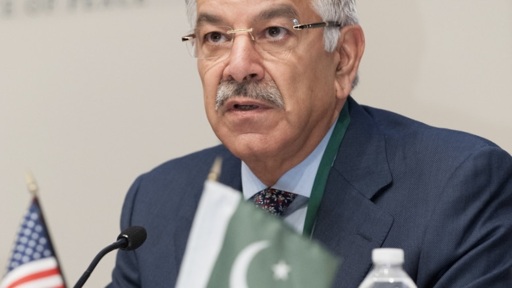Neighboring Afghanistan and Pakistan agreed to a temporary ceasefire on Wednesday, October 15, after almost a week-long series of heavy cross-border clashes between their armed forces killed and wounded scores of people and caused substantial damage to the civilian infrastructure.
In a statement, Pakistan’s foreign office claimed that the ceasefire was initiated at the request of Afghanistan and will last for 48 hours from 6 pm on Wednesday. It said that “during this period, both sides will make sincere efforts to find a positive resolution to this complex but solvable issue through constructive dialogue,” Dawn reported.
However, the statement posted by the Taliban’s spokesman Zabihullah Mujahid on his X page claimed the ceasefire was agreed upon Pakistan’s request and will last until it is violated.
Pakistan also acknowledged that the ceasefire was reached through the intervention of some “friendly countries”, without naming them.
Pakistan’s Defense Minister Khawaja Asif, in a TV interview, also acknowledged the role played by the “friendly countries” in achieving the ceasefire. However, he expressed his apprehensions, claiming the ceasefire may not last long.
He accused the Taliban administration in Afghanistan of fighting a proxy war against his country on India’s behalf.
India and Pakistan have fought several wars since their independence from British colonial occupation in 1947 over Kashmir and other issues. In May this year, armed forces from both countries clashed for days over the attack on tourists in Kashmir’s Pahalgam, killing scores of civilians on both sides of the border.
Though the Taliban traditionally has been close to Pakistan, where it was born as an armed religious movement during the US-backed war against Soviet presence in Afghanistan during the 1980s, the dynamics between them have changed since it took power in Afghanistan in August 2021, after the US withdrawal.
Pakistan has accused the Taliban government of aiding and supporting Tahreek-e-Taliban Pakistan (TTP) which is its offshoot in the country. The TTP has been banned by the Pakistan government after holding it responsible for carrying out several attacks and killing thousands of its civilians and armed forces.
Clashes across Durand Line
The present cross-border hostility between Afghanistan and Pakistan emerged on October 11, after the Taliban allegedly launched an attack on the Pakistani border post, killing 23 of its soldiers.
Before that, on October 9, the Taliban had accused Pakistan of carrying out airstrikes inside Afghanistan territory. Though its forces are engaged in an operation against the TTP in the border regions, Pakistan did not respond to the Taliban’s accusation.
In response to an alleged Taliban attack, Pakistan forces launched multiple military attacks inside Afghanistan, reportedly killing hundreds of Taliban soldiers and civilians.
On Tuesday, Pakistan again alleged that the Taliban launched a coordinated attack on its Chaman border in its Balochistan province, destroying the Pakistan-Afghanistan “friendship gate” and injuring several civilians.
Pakistan claimed it launched air strikes on certain targets in Kandahar and several other places inside Afghanistan on Wednesday in retaliation.
The Taliban-led government denied claims of attacks on Tuesday calling Pakistan’s attacks on Wednesday unprovoked.
There were also reports of clashes between Taliban and Pakistan army across the over 2,500 kilometers long border known as Durand line just before the ceasefire was announced.
Explosions were recorded in Kabul as well though it was not clear whether it was due to attacks carried out by the Pakistani forces.
Following the clashes, Pakistan has shut its Turkham border crossing with Afghanistan, leaving thousands of people who move across the border every day for trade and other purposes stranded.
Both the countries have warned each other not to launch further attacks, vowing stronger responses. Ishaq Dar, Pakistan’s foreign minister, also reiterated his country’s demand that the Taliban take concrete measures against TTP and other such groups.
The UN had urged both the countries to cease hostilities and resolve their differences through dialogue. Its mission in Afghanistan, UNAMA, welcomed the declaration of a ceasefire on Thursday.
The post Pakistan, Afghanistan agree to a temporary ceasefire after week-long clashes appeared first on Peoples Dispatch.
From Peoples Dispatch via this RSS feed


